Chinese Foreign Minister Wang Yi and US Secretary of State Rex Tillerson touched upon rising tensions on the Korean Peninsula in a joint press conference after their meeting on Saturday afternoon in Beijing.
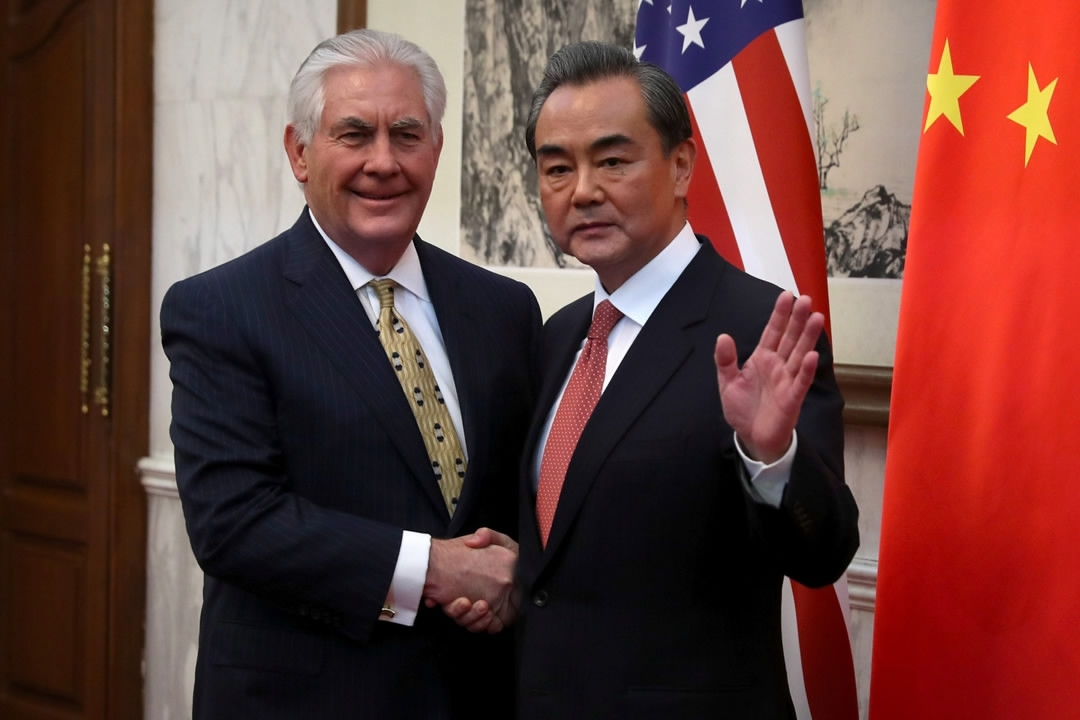
Chinese Foreign Minister Wang Yi (R) shakes hands with US Secretary of State Rex Tillerson at Diaoyutai State Guesthouse on March 18, 2017 in Beijing, China. /CFP Photo
A few minutes before the press conference, the US Department of State quoted Tillerson in a Tweet as saying the relationship between China and the US has been very positive, noting it is built on "non-confrontation, no conflict and mutual respect."
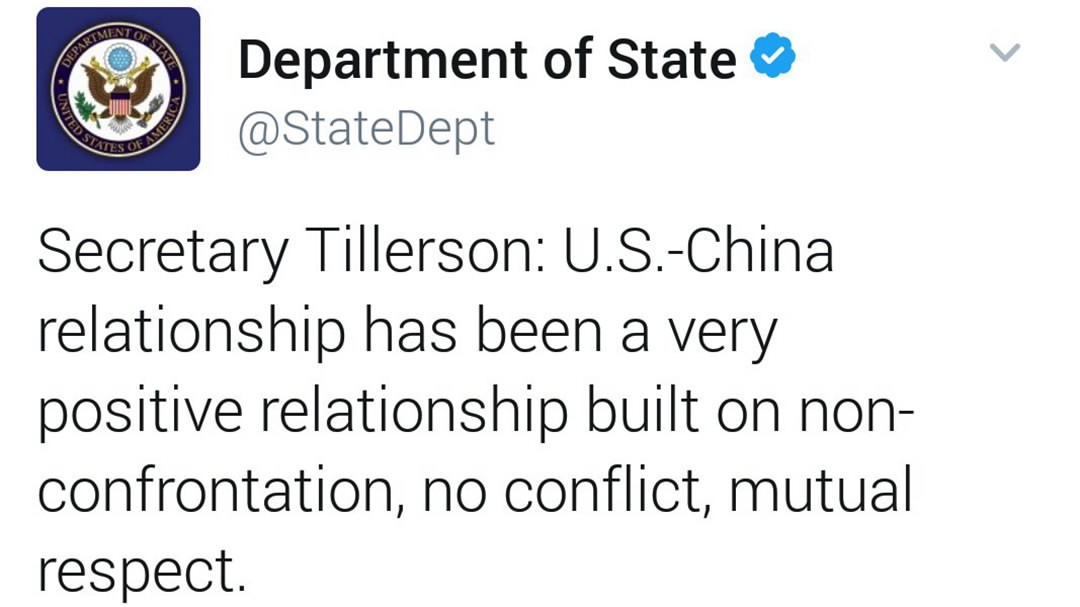
The two sides reached consensus on firmly sticking to the denuclearization of the Korean Peninsula, strictly implementing relevant UN Security Council resolutions, and making efforts to resume negotiations between concerned parties.
Wang noted the DPRK nuclear issue is rooted in the conflict between Washington and Pyongyang and that China has played an important role in containing DPRK’s nuclear program.
Upon the request of the US side, China has worked for the establishment of the three-party talks in 2003 which expanded later to become a six-party framework, said Wang.
His comments came after US President Donald Trump took to Twitter on the eve of Tillerson’s visit to China to criticize Beijing for doing “little to help” to rein in the DPRK.
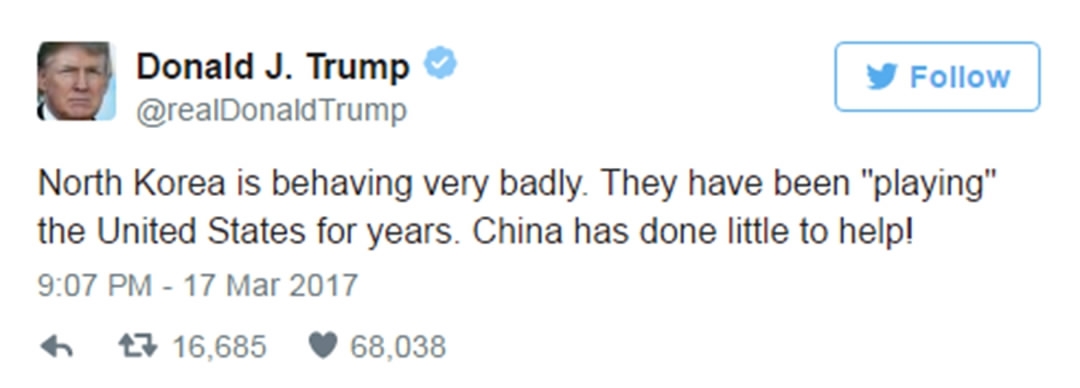
Wang added that after the talks grounded to a halt, China worked together with the US and the other members of the UN Security Council to pass a series of DPRK-related resolutions.
He stated that it is an obligation that all stakeholders carry out increasingly tougher sanctions against the DPRK, but it is also their responsibility to restart talks.
Wang reiterated that the most important principle of easing tensions is keeping commitment to peaceful and diplomatic means, which is always China’s stance on the DPRK nuclear program.
On Friday, Tillerson warned from South Korea that if the threat from the DPRK's nuclear program reaches a level “that we believe requires action,” preemptive military action against the country might be necessary.
The US official also voiced support to the deployment of the US anti-missile defense system during a press conference with South Korean Foreign Minister Yun Byung-se, citing growing nuclear and missile threat from the DPRK.
The THAAD installation is a thorny issue between Beijing, Seoul and Washington.
China has repeatedly expressed its opposition to the deployment, saying it disrupts regional strategic balance and does no good to peace and stability of the Korean Peninsula.
Acquiring the US battery may lead to South Korea plunging into a more insecure situation, warned Chinese Foreign Ministry Spokesperson Hua Chunying in a press briefing Friday.
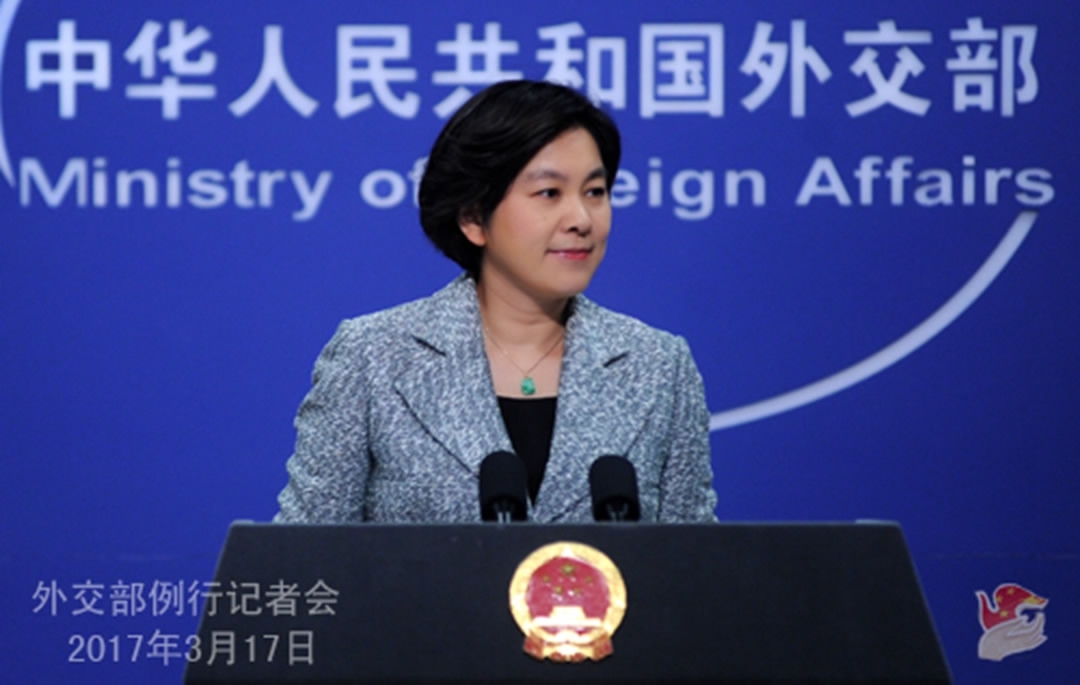
Chinese Foreign Ministry Spokesperson Hua Chunying answers questions during a press briefing on March 17, 2017. /CFP Photo
China is the last leg of Tillerson’s East Asia tour, which saw him visiting Japan and South Korea.
He is in Beijing to set the stage for the first summit between Chinese President Xi Jinping and US President Donald Trump in early April.
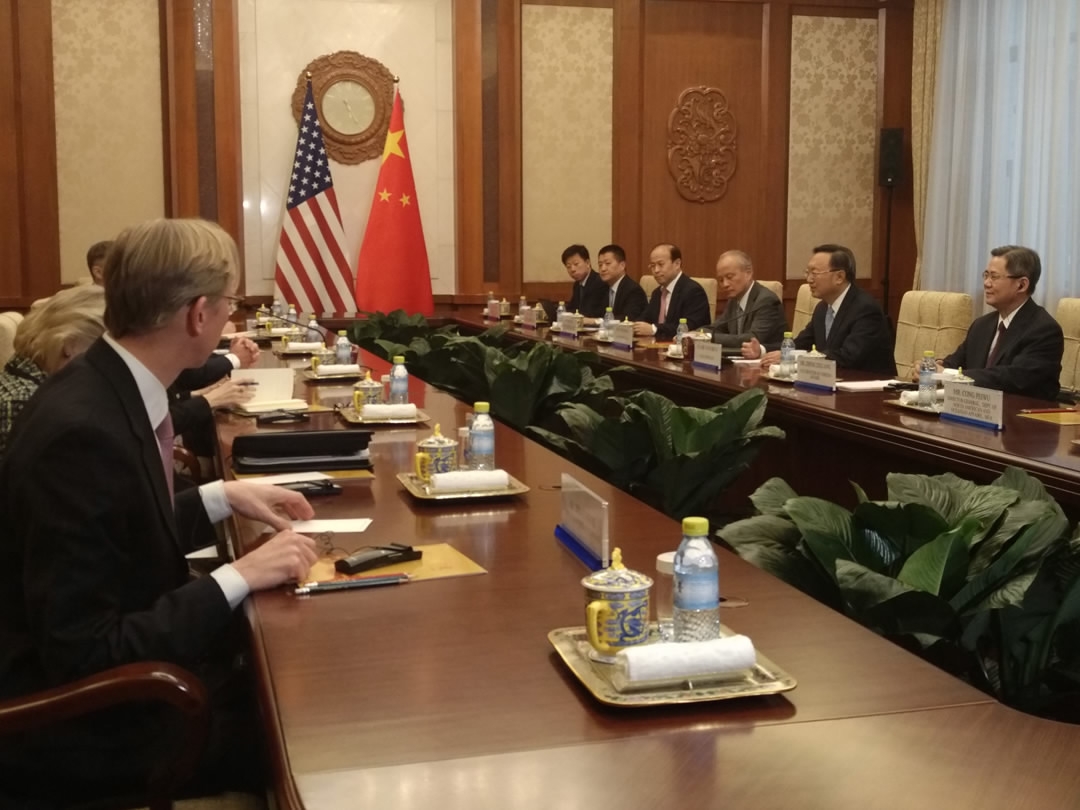
Chinese State Councilor Yang Jiechi meets with US Secretary of State Rex Tillerson on March 18, 2017. /CFP Photo
Chinese State Councilor Yang Jiechi, who recently visited the US and met with senior officials there, held talks with Tillerson after his press conference with Wang. The US envoy is scheduled to meet Chinese President Xi Jinping on Sunday.
3km










